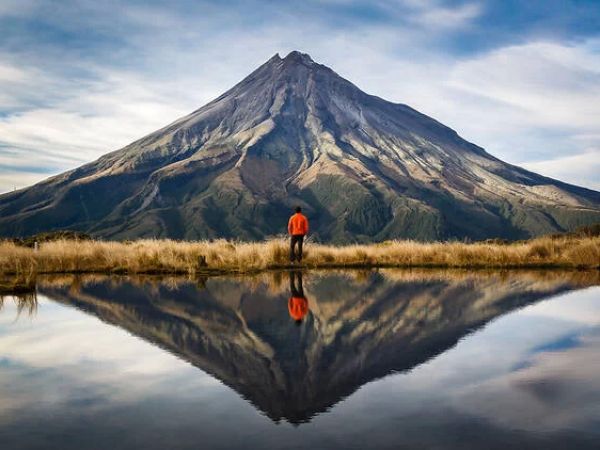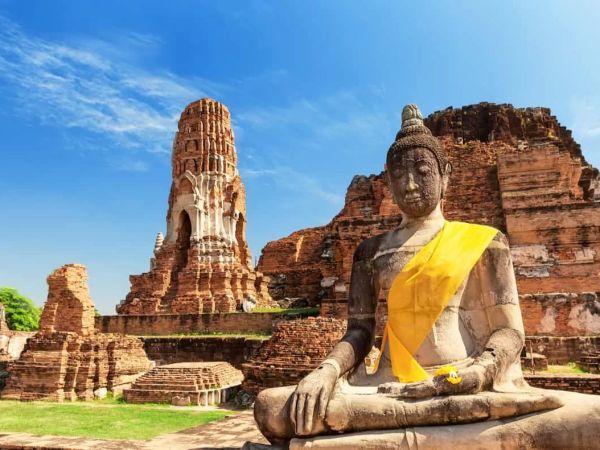Discover the Most Iconic Landmarks in Tokyo, Japan
- 1. Tokyo Tower: A Symbol of Japan's Modernity
- 2. Senso-ji Temple: Tokyo's Oldest and Most Famous Temple
- 3. Shibuya Crossing: The World's Busiest Intersection
- 4. Meiji Jingu Shrine: Serenity Amidst the City
- 5. The Imperial Palace: A Glimpse into Japan's Royal History
1. Tokyo Tower: A Symbol of Japan's Modernity
Standing proudly in the heart of Tokyo, Tokyo Tower is a must-see for any traveler. Inspired by the Eiffel Tower, this landmark offers breathtaking views of the city from its observation decks. Originally built in 1958, Tokyo Tower symbolizes Japan's rapid post-war growth and modernization. A visit here isn't just about the panoramic views; it's also about experiencing the blend of history and modernity that defines Tokyo itself.
For many visitors, the best time to visit Tokyo Tower is at night, when the city lights sparkle below. If you're an adventure seeker, make sure to check out the tower’s special seasonal events, such as fireworks displays or illuminated night tours. This iconic structure is one of Tokyo's top landmarks and an experience you won't want to miss.
2. Senso-ji Temple: Tokyo's Oldest and Most Famous Temple
Situated in the vibrant Asakusa district, Senso-ji Temple is Tokyo's oldest temple and one of its most revered landmarks. With its rich history and beautiful architecture, Senso-ji provides a peaceful escape from the bustling city. The temple was founded in the 7th century and remains an essential part of Japanese culture and spirituality today.
Visitors often approach the temple through the Kaminarimon Gate, a giant red lantern that marks the entrance to the temple grounds. As you walk along the bustling Nakamise Street, you’ll pass numerous shops selling traditional goods and snacks. Once you reach the temple, take a moment to admire the intricate details of the pagoda and the serene atmosphere that envelops the area.
3. Shibuya Crossing: The World's Busiest Intersection
If you've seen any movies set in Tokyo, you've likely seen Shibuya Crossing. Known as the world's busiest pedestrian intersection, Shibuya Crossing is a true representation of the hustle and bustle of Tokyo. Located right in front of Shibuya Station, this crossing sees thousands of people crossing from all directions at the same time—creating a mesmerizing visual spectacle.
Shibuya is not just a crossing; it’s also a vibrant district filled with shopping, dining, and entertainment options. Whether you're there to watch the crossing in action or dive into the energetic city vibe, Shibuya will offer you a unique Tokyo experience. Make sure to stop by the famous Hachiko Statue, a tribute to the loyal Akita dog who waited for his owner at Shibuya Station every day for over nine years.
4. Meiji Jingu Shrine: Serenity Amidst the City
Located near Harajuku, Meiji Jingu Shrine is Tokyo’s most important Shinto shrine, dedicated to Emperor Meiji and Empress Shoken. Despite being in the heart of Tokyo, the shrine is surrounded by a lush forest that provides a peaceful and spiritual retreat. The grand torii gates mark the entrance, leading you into a world of tranquility away from the city’s fast pace.
One of the most unique aspects of visiting Meiji Jingu Shrine is the opportunity to participate in traditional Shinto rituals. Whether you’re praying for good health, success, or love, visitors are encouraged to engage in the spiritual atmosphere by making a donation, clapping their hands, and bowing at the shrine. It’s a deeply personal experience that offers insight into Japan’s spiritual traditions.
5. The Imperial Palace: A Glimpse into Japan's Royal History
The Imperial Palace, located in the heart of Tokyo, is the official residence of the Japanese Imperial Family. While the palace itself is not open to the public, the beautiful East Gardens are accessible year-round and offer a glimpse into Japan’s royal history and lush landscape design.
Walking through the East Gardens, you’ll find peaceful walking paths, ponds, and impressive stone walls that date back to the Edo period. If you happen to visit on the Emperor's birthday or New Year's Day, you can even join the crowds in greeting the Imperial Family from the palace grounds. The Imperial Palace is a quiet and majestic part of Tokyo, providing visitors a connection to Japan's past.
Tokyo’s iconic landmarks offer a perfect mix of modernity, history, and culture. Whether you’re marveling at the towering Tokyo Tower, experiencing the serenity of Meiji Jingu Shrine, or crossing the lively Shibuya Crossing, each landmark has its own unique charm and story to tell. Ready to explore these unforgettable sites? Book your Tokyo adventure today through how to travel the world and embark on a journey you’ll cherish forever.






